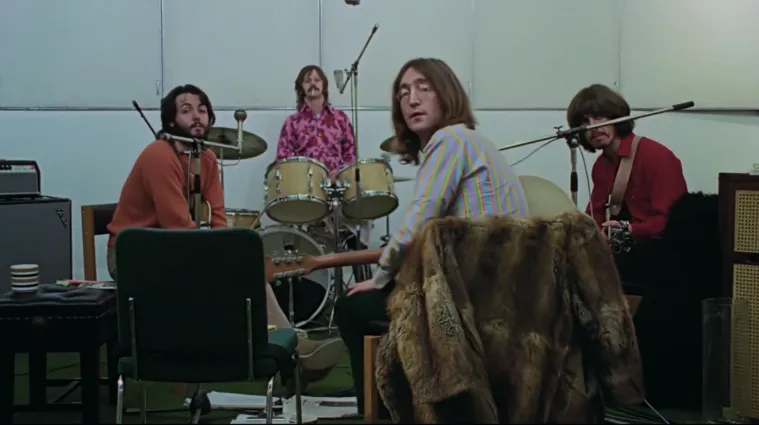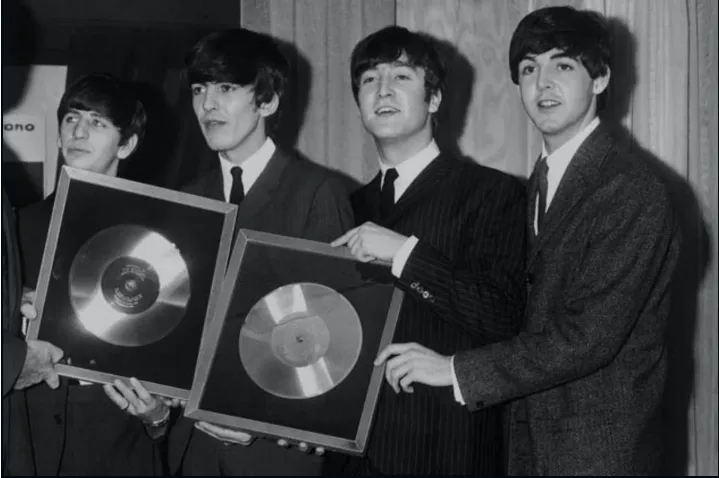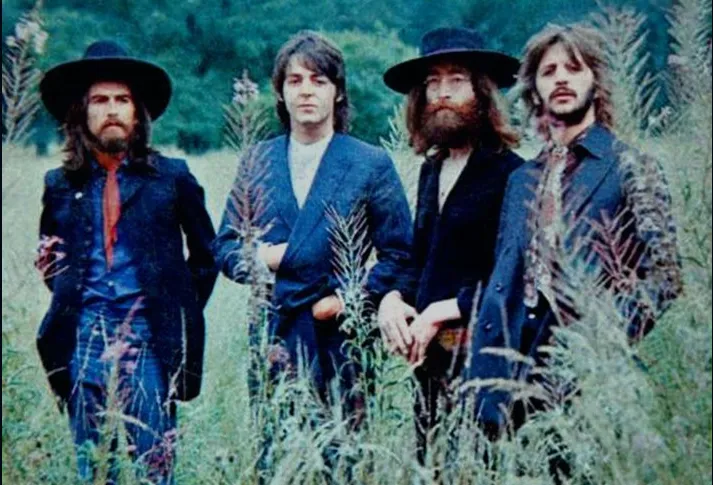Among the myriad of captivating songs by The Beatles, "Julia" stands out for its poignant lyrics and heartfelt melody.
Written by John Lennon, it appeared on the Beatles' double album known as "The White Album," released in 1968.
This song is not just another entry in the Beatles’ extensive catalog; it holds a deeply personal significance to Lennon.
But who was "Julia"? Dive into the emotional and personal underpinnings of "Julia," shedding light on the profound connections that inspired this heartfelt tune.
A Backdrop of Personal Reflection
By the late 1960s, the Beatles were navigating through a complex maze of professional highs and personal lows. Amidst all the turmoil, Lennon found himself drawn to introspection and emotional expression.
The song "Julia" is an acoustic ballad, featuring only Lennon on guitar and vocals. Its simplicity stands in stark contrast to the often elaborate and multi-layered compositions typical of the Beatles' work during this era.
This stripped-down arrangement adds a layer of vulnerability and intimacy, allowing Lennon’s emotions to shine through.
The Woman Behind "Julia"

The title "Julia" refers to Lennon’s mother, Julia Stanley Lennon, who had a significant yet tumultuous presence in his life. Julia passed away in 1958 when Lennon was just 17 years old, an event that left an indelible mark on him.
Her death was a source of immense pain that Lennon carried with him, often surfacing in his music as a means of processing and expressing his grief.
Julia Lennon was a free spirit, known for her love of music and fun-loving nature. Despite the challenging circumstances that surrounded their relationship—John was largely raised by his Aunt Mimi—Julia remained an influential figure.
She introduced him to music, teaching him to play the banjo, thereby planting the seeds of his future career.
Lyrical Introspection
The lyrics of "Julia" are among the most introspective and personal Lennon ever wrote. The song opens with:
"Half of what I say is meaningless But I say it just to reach you, Julia."
These lines reflect Lennon’s struggle to articulate the depth of his feelings. The notion of words being insufficient mirrors the universal human experience of grappling with grief and longing for lost loved ones.
Lennon’s attempt to "reach" Julia signifies his desire to reconnect with her memory and presence.
Symbolic Undertones
While the primary muse for "Julia" was undoubtedly Lennon’s mother, the song also weaves in references to Yoko Ono, who had become an integral part of his life by this time.
The duality of "Julia" serves as a bridge between his past and his present, blending the memories of his mother with the love and influence of Yoko Ono.
The song’s lines “Julia, seashell eyes, windy smile, calls me” evoke the ethereal and tender imagery associated with Julia, but they also carry the poetic influence of Ono’s avant-garde artistry.
Here, Lennon masterfully intertwines the two most significant women in his life—his mother and Yoko—creating a lyrical tapestry that honors both.
Recording and Production

Recorded on October 13, 1968, at EMI Studios, "Julia" was a departure from the usual collaborative process of the Beatles. The session saw John Lennon working mostly alone, with George Martin producing.
Unlike the multi-track, richly orchestrated arrangements typical of the Beatles’ sessions, "Julia" relied on Lennon's raw vocal and acoustic guitar.
This stripped-back production choice not only highlighted the song's lyrical content but also underscored the intimate, confessional nature of Lennon’s performance.
His fingerpicking guitar style, reportedly influenced by Donovan during the Beatles’ stay in India, added a layer of melodic intricacy to the piece.
Emotional Catharsis
For Lennon, "Julia" was more than a song; it was an emotional release, a way to process his deep-seated grief and find solace. The act of writing "Julia" allowed Lennon to confront his unresolved feelings about his mother’s death, giving him a medium through which he could express emotions that had long been suppressed.
The song’s lyrical melancholia, combined with its soothing melody, offers listeners a glimpse into Lennon’s soul. It conveys a universal sense of loss and longing, making "Julia" resonate deeply with those who have experienced similar heartache.
Yoko Ono’s Influence
Yoko Ono’s influence on "Julia" is subtle yet significant. By the time of the song’s creation, Lennon and Ono’s relationship had grown profoundly deep, affecting both his personal life and artistic output. Ono’s avant-garde approach to art and life encouraged Lennon to explore more personal and introspective themes in his music.
The blend of poetic abstraction and raw emotion in "Julia" bears traces of Ono’s influence, merging Lennon’s grief over his mother with his love for Ono.
This dual inspiration creates a layered narrative within the song, allowing it to transcend a single context or interpretation.
Reception and Legacy
Despite its deeply personal nature, "Julia" was embraced by fans and critics alike for its lyrical beauty and emotional depth.
It remains one of the more intimate and moving tracks in the Beatles’ discography, often cited as a testament to Lennon’s songwriting prowess.
"Julia" influences both fans and fellow artists, many of whom cite it as one of the Beatles' most poignant compositions.
Its haunting melody and deeply personal lyrics continue to resonate, making it a perennial favorite among those exploring the emotional spectrum of Lennon’s work.
Personal Reflections

For many listeners, "Julia" provides a deeply moving experience, offering a window into Lennon’s soul. It’s a song that speaks to anyone who has grappled with loss, longing, and the desire for connection.
The universal themes of grief and love, rendered through Lennon’s masterful lyricism and emotive performance, make "Julia" timeless.
Listening to "Julia" feels like sharing an intimate moment with Lennon, feeling his pain and understanding the weight of his memories. It serves as a reminder of the emotional power of music and its ability to convey complex human experiences.
A Song of Love and Loss
"Julia" stands as a poignant testament to John Lennon’s ability to channel his deepest emotions into song. It bridges his past and present, honoring the memory of his mother while also embracing the influence of Yoko Ono.
The song’s intricate layers of meaning and raw emotional honesty continue to captivate listeners, making it one of the most cherished tracks in the Beatles’ catalog.
By exploring "Julia," we gain insight into the personal dimensions of Lennon’s artistry and the profound impact of his relationships. It’s a song that transcends time, offering solace and connection to all who listen.
In "Julia," Lennon immortalized his love and loss, creating a piece of music that remains a touching tribute to his mother and a reflection of his own journey through life.

-1726713745-q80.webp)

